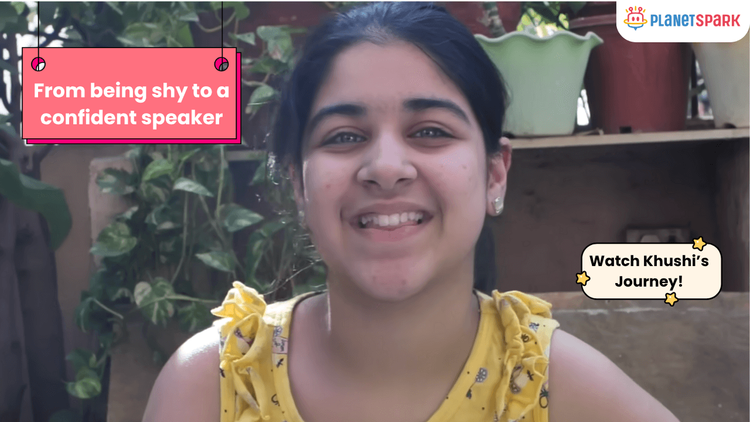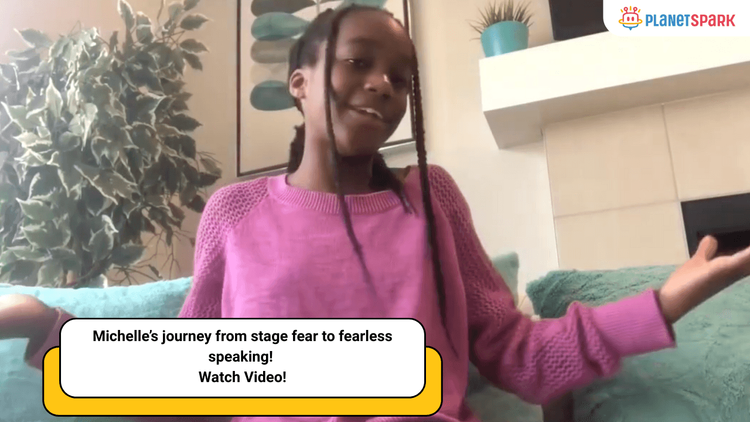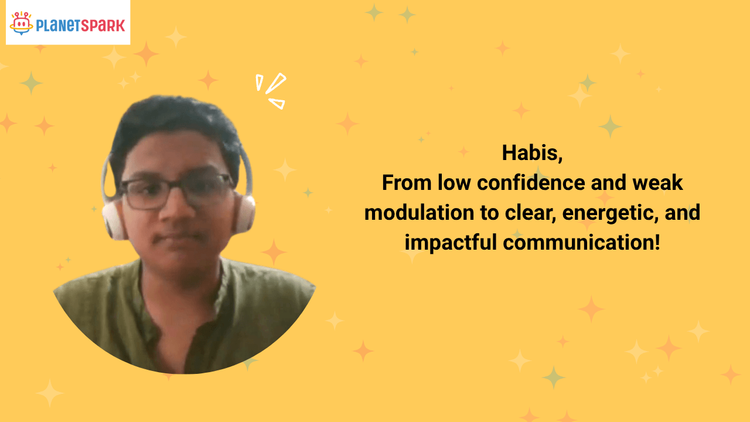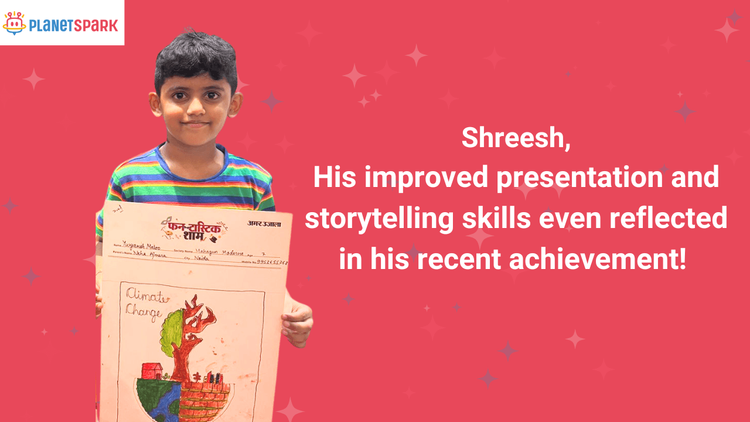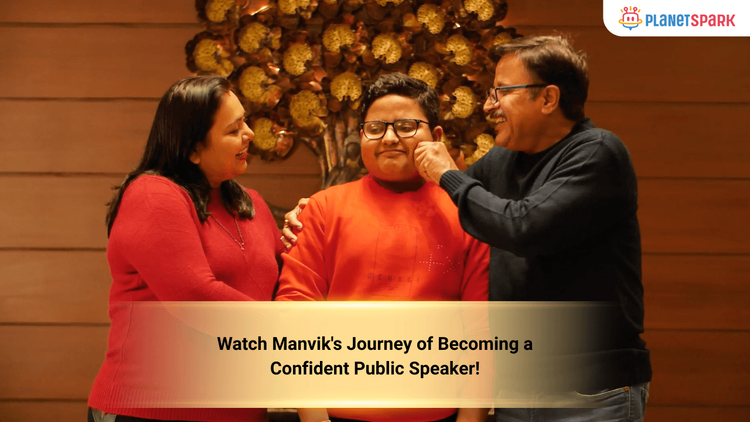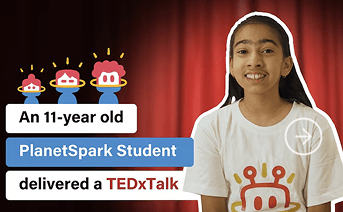Featured in leading media for shaping young learners into confident, articulate, and future-ready achievers through Interpersonal Skills Courses For Kids.

Master Interpersonal Skills at a Young Age With PlanetSpark
Help your child master lifelong skills with PlanetSpark’s Interpersonal Skills Courses for Kids.
from 20,000+ Reviews
Learners Transformed
Did you know that 85% of career success comes from well-developed interpersonal and communication skills, while only 15% depends on technical knowledge?
PlanetSpark’s Interpersonal Skills Courses for Kids ensure your child learns how to listen, express, collaborate, and lead with confidence. The journey begins today, but the impact lasts a lifetime.
Inside PlanetSpark's Interpersonal Skills Course For Kids
Our interpersonal skills courses for kids are designed to build confidence, empathy, and effective communication. Children learn the true interpersonal skills meaning through role-plays, discussions, and real-life activities that improve their ability to connect with peers and adults. They gain practical exposure to interpersonal skills examples like listening actively, resolving conflicts, teamwork, and expressing ideas with clarity.
What Is Different About Our Interpersonal Skills Courses For Kids?
Who Are These Courses For?
This program is ideal for kids who feel shy, avoid group discussions, or find it difficult to make lasting friendships. It helps them overcome hesitation and express themselves with confidence in everyday school life. As they progress, these skills grow into future-ready abilities like leadership, collaboration, and critical thinking qualities that set them apart in higher studies and professional careers.
Modules Covered In Interpersonal Skills Courses For Kids
Learning Outcomes In Interpersonal Skills Courses For Kids
By the end of this course, kids will:
Communicate with clarity and confidence in classrooms, group discussions, and later in professional settings like interviews and presentations.
Demonstrate empathy, collaboration, and leadership, helping them excel in academics, teamwork projects, and future workplace environments.
Apply interpersonal skills examples to build stronger friendships, manage conflicts, and eventually grow into persuasive leaders and effective professionals.
Skills Covered
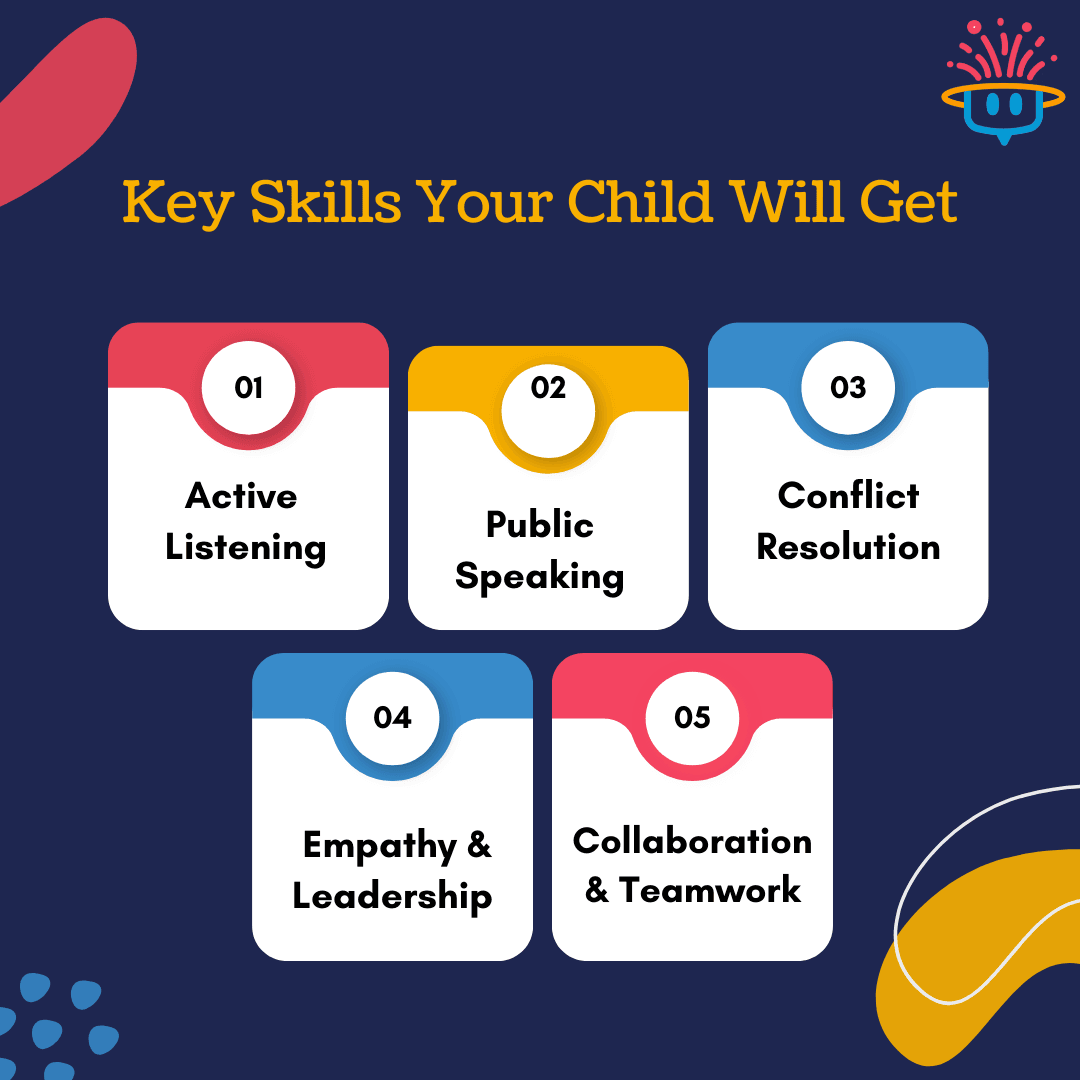
The Roadmap Of Our Interpersonal Skills Courses for Kids
Step 1: Discover & Personalise
We begin with a detailed baseline assessment to understand your child’s communication ability and confidence level. Parents share goals, preferences, and challenges so our trainers can customise the approach. A personalised roadmap is created to clearly define milestones for growth.
Step 2: Foundations & Skill Modules
Children start with the basics of interpersonal skills meaning through fun, interactive lessons. They explore active listening, empathy, body language, and clear expression in simple ways. This builds a strong foundation before moving to advanced practice.
Step 3: Guided Practice & Tech-Enabled Feedback
Through 1:1 live sessions, kids practise real-life scenarios like conversations, storytelling, and role-plays. SparkX AI feedback highlights posture, voice clarity, and structure for measurable progress. Gamified tools reinforce concepts daily, making practice both fun and effective.
Step 4: Real-World Application & Social Labs
Learners join Confidence Clubs where they take part in debates, group projects, and storytelling circles. They collaborate with peers from India and across 13+ countries for global exposure. This helps them apply communication and interpersonal skills in real-world situations.
Step 5: Measure, Celebrate & Advance
Progress is tracked through AI reports, PTMs, and regular trainer updates for parents. Children earn certificates, join competitions, and showcase their skills to celebrate achievements. With every step, the roadmap is updated to target higher-level skills like leadership and conflict resolution.
Get Acquainted with Our Top Educators
Top 1% certified experts who make learning engaging and impactful.
Why Interpersonal Skills Matter for Kids
Interpersonal skills go beyond just “talking well.” They are the foundation for confidence, collaboration, and building healthy relationships. These include listening actively, expressing thoughts clearly, understanding emotions, and leading with empathy. Strong communication and interpersonal skills shape not only a child’s school experience but also their long-term success.
✔️Example 1: A child who hesitates to answer in class slowly gains confidence through structured practice. Soon, they are raising their hand, asking questions, and presenting ideas clearly in group activities.
✔️Example 2: A student who struggles to make friends learns the value of empathy and active listening. With guidance, they become approachable, supportive, and able to form lasting friendships.
✔️Example 3: A child nervous about giving a presentation learns voice modulation and body language techniques. Eventually, they confidently present in front of peers and even volunteer for school competitions.
✔️Example 4: A student who often feels stressed during group projects begins to understand teamwork and negotiation. Instead of conflicts, they start leading discussions and helping their team achieve goals.
At PlanetSpark, we make these changes possible with our Interpersonal Skills Courses for Kids. Enroll Now For a Free Demo Class.
The PlanetSpark Superstars!
PlanetSpark empowers kids with the confidence, creativity, and social skills they need to succeed in every interaction.
Benefits of Booking Your Free Demo Session
Not sure if this is right for you? Book a free demo session worth ₹1000 and experience the difference yourself.
PlanetSpark Impact

Parent Testimonials That Speak Volumes
Authentic stories from families who’ve watched their children grow into confident, articulate, and fearless young speakers through our interpersonal skills courses designed for kids.
Strong interpersonal skills are the foundation of a child’s confidence, friendships, and future success. When kids learn to communicate clearly, listen with empathy, and lead with courage, they not only thrive in school but also grow into tomorrow’s changemakers. PlanetSpark’s Interpersonal Skills Courses for Kids are designed to nurture these abilities step by step, preparing your child for a world where connection and collaboration matter most.
Making Headlines Nationwide
Frequently Asked Questions
Interpersonal skills are the ability to communicate, listen, and work well with others. Kids with these skills build confidence and stronger friendships. At PlanetSpark, we help children master them through 1:1 coaching and real-life practice.
Strong interpersonal skills help kids succeed in academics, group projects, and future careers. They also boost social confidence and empathy. PlanetSpark’s courses ensure kids gain these skills in a fun, engaging way.
Our trainers use live 1:1 sessions, role-plays, and AI feedback to make learning effective. Kids also join debates, storytelling, and group activities. This ensures they practise skills in real situations while building confidence.
By the end, kids communicate clearly, show leadership, and collaborate better with peers. These skills prepare them for both academic excellence and future success. PlanetSpark ensures every child achieves visible growth.
Unlike generic classes, PlanetSpark offers personalised learning with certified trainers and AI-powered feedback. Kids also gain global exposure and join exciting clubs, making learning interactive and future-ready.
Children can develop interpersonal skills by practicing active listening, showing empathy, and communicating clearly in everyday interactions. Engaging in group activities, role-plays, and collaborative tasks helps them learn teamwork and respect for others’ perspectives. With consistent guidance and practice, kids build stronger connections and greater confidence in social situations.
Loading available times...

Hi There, want to try these
tips for your child with
LIVE with our expert coach?
Let's check your child's
English fluency







